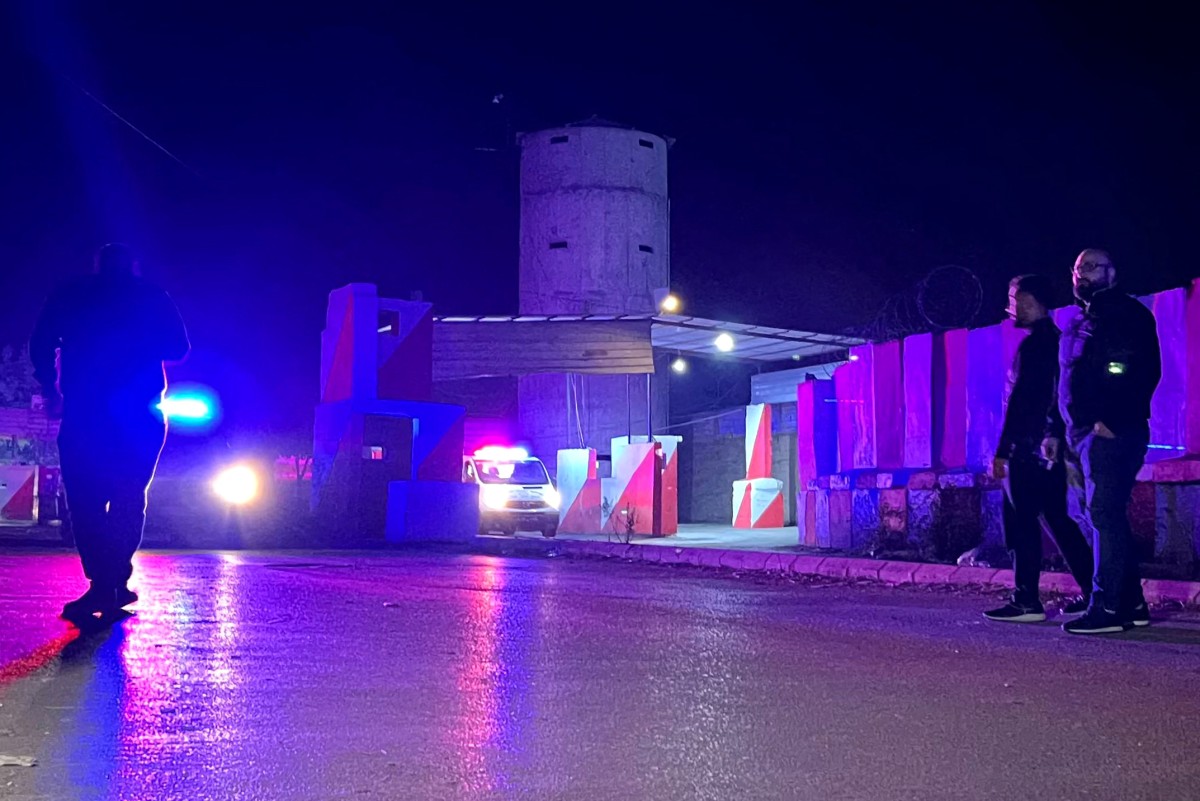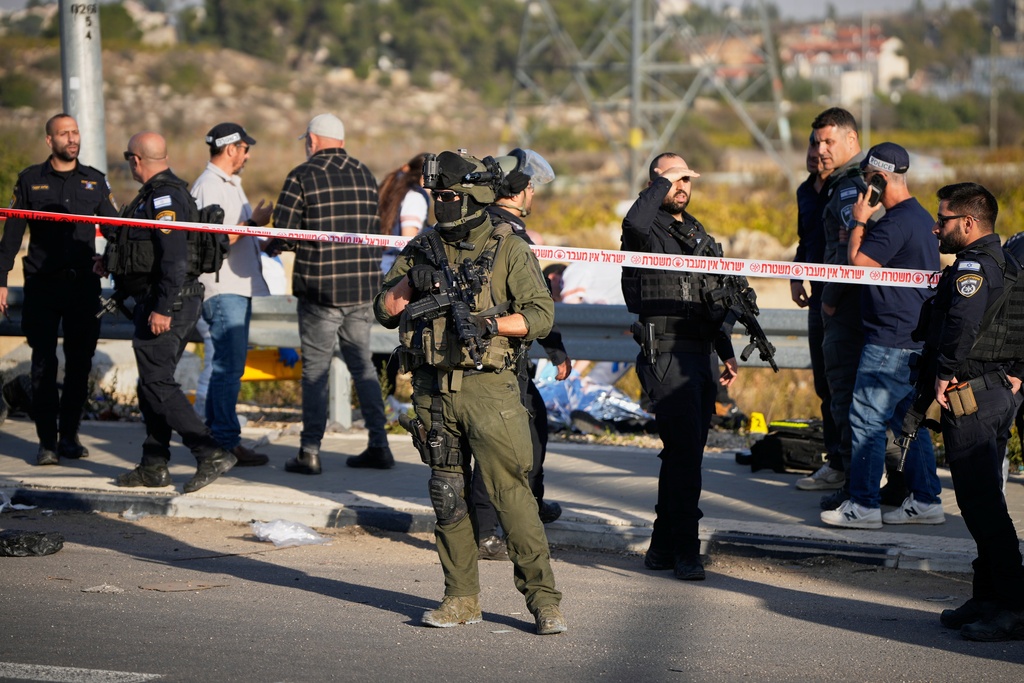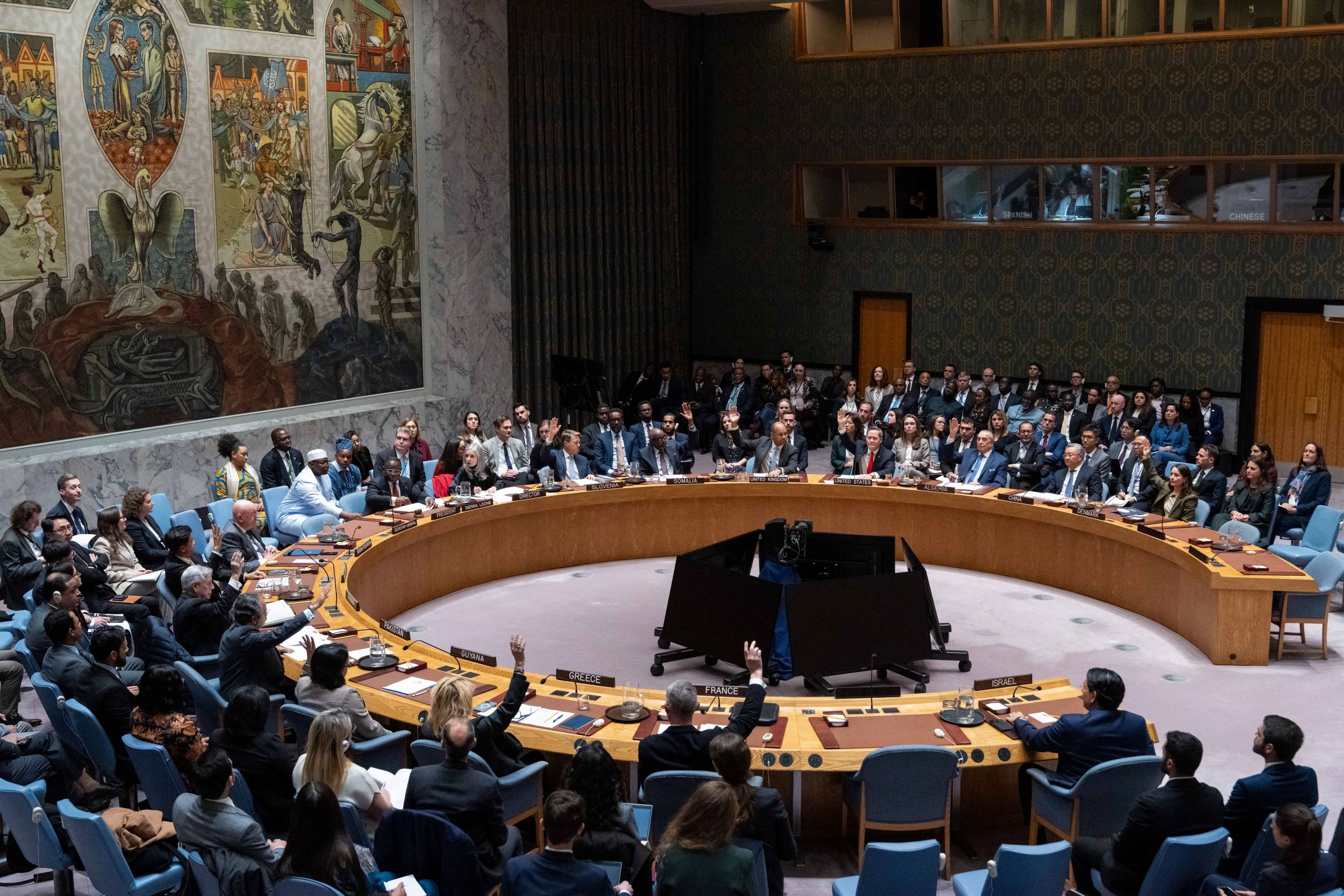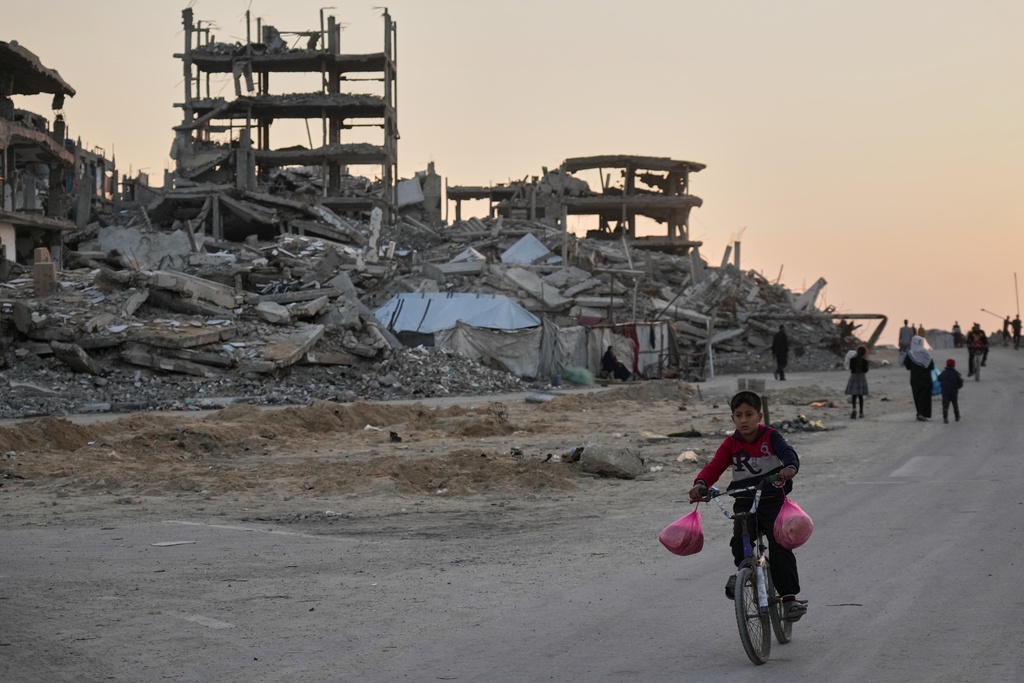
BEIRUT/JERUSALEM/GAZA/AMMAN/CAIRO/LONDON - At least 13 people were killed and several others injured on Tuesday evening in an Israeli airstrike on the Ain al-Hilweh refugee camp in the city of Sidon in southern Lebanon, the Lebanese Health Ministry reported.
According to local TV channel al-Manar, the Israeli airstrike targeted a highly populated area in Ain al-Hilweh.
The channel reported that ambulances were transporting casualties to hospitals, while Israeli warplanes continued to fly at low altitude over the camp.
For its part, the Israeli military said in a statement that the strike targeted militants "operating in a Hamas training compound" in the Ain al-Hilweh area, adding that the site had been used to plan and conduct attacks against Israeli troops.
"The IDF (Israel Defense Forces) is operating against Hamas' presence in Lebanon and will continue to act against Hamas terrorists wherever they operate," the statement said.

Israeli man killed in West Bank
Also on Tuesday, an Israeli man was killed and three others wounded in a ramming and stabbing attack in the occupied West Bank, carried out by two Palestinian suspects who were subsequently shot dead by security forces, Israeli officials said.
No group immediately claimed responsibility for the attack.
The military said the attack took place at the Gush Etzion Junction, a major intersection in a settlement bloc south of Jerusalem.
United Hatzalah, a local emergency medical service, said the assailants tried to ram commuters with their vehicle before getting out and stabbing people. The group said both suspects were shot dead at the scene and published a photo showing one of them lying on the ground with a kitchen knife beside his hand.
Israel's Magen David Adom rescue service said three Israelis were taken to hospitals: A woman in serious condition, and a man and a 15-year-old boy with moderate stab wounds.
The fatality was identified as a man in his 30s who died of stab wounds at the scene, the service said.

International stabilization force in Gaza
Separately, Palestinian reactions were mixed following the UN Security Council's adoption on Monday of a US-drafted resolution endorsing the creation of an international stabilization force (ISF) in Gaza.
The resolution authorizes UN member states and the Board of Peace (BoP), a transitional administration in Gaza that will coordinate reconstruction efforts, to establish a temporary ISF in Gaza to carry out its mandate consistent with international law. Countries will contribute personnel to the force "in close consultation and cooperation" with Egypt and Israel.
ALSO READ: UN Security Council endorses intl stabilization force in Gaza
In a statement released by the official WAFA news agency, the Palestinian Authority (PA) welcomed the adoption of the resolution, reiterating its readiness to assume full responsibilities in the Gaza Strip within the framework of the unity of land, people, and institutions, and stressing that Gaza is an inseparable part of the State of Palestine.
Hamas issued a statement on the same day, criticizing the resolution for not meeting the political and humanitarian needs of the Palestinian people, particularly those in Gaza.
Mohammed Zarandah, a 39-year-old father of four from Gaza City, described the resolution as "a good decision", saying it could help end the fighting and bring stability to Gaza, which has endured two years of conflict, displacement, and destruction. He added that it was time to rebuild the Strip and remove any pretext for future Israeli attacks, even if disarmament is required.
Hamas, however, has consistently refused to disarm, considering it a red line, while Israel insists on the disarmament of Hamas and other Palestinian factions in Gaza as part of the second phase of the ceasefire agreement.
Majed Awda, 35, from al-Nuseirat refugee camp in central Gaza, opposed deploying international forces, warning that their presence could become "a bigger problem than the war itself".
He said the presence of international forces would mean their intervention and control over the citizens and the way of life in the Gaza Strip, which is "categorically unacceptable".

Need to consolidate Gaza ceasefire
On Tuesday, Jordanian Prime Minister Jafar Hassan and Palestinian Prime Minister Mohammad Mustafa underlined the importance of building on growing international recognition of the State of Palestine, consolidating the Gaza ceasefire, and facilitating the deployment of an international stabilization force in Gaza.
During their talks, Hassan reiterated Jordan's firm positions in support of the Palestinian people, their legitimate rights, and the establishment of an independent Palestinian state.
He reaffirmed Jordan's rejection of threats, repression, and aggression by Israel and Israeli settlers against Palestinians, underscoring his country's commitment to safeguarding Islamic and Christian holy sites in Jerusalem.
Egypt, Britain, Arab League back UN resolution
Meanwhile, Egyptian President Abdel-Fattah al-Sisi and British Prime Minister Keir Starmer held a phone conversation, during which they emphasized the urgent need to build upon the recent UN Security Council resolution concerning the Gaza Strip.
The leaders stressed that this follow-up is essential to solidify the existing ceasefire and achieve further de-escalation in Gaza, according to a statement from the Egyptian presidency.
Meanwhile, Arab League Secretary-General Ahmed Aboul-Gheit said on Tuesday that the recent UN Security Council resolution on the Gaza Strip represents the "beginning of the road, not its end".
Israeli response to settler violence 'insufficient'
British Foreign Secretary Yvette Cooper told the House of Commons on Tuesday that the Israeli authorities' response to settler violence is "still completely insufficient - practically and legally".
Addressing lawmakers on Tuesday afternoon, Cooper stressed that curbing settlement expansion and settler violence is essential to safeguarding the two-state solution, adding that "Palestine must be run by Palestinians."
READ MORE: Israel kills 1 Palestinian in Gaza amid fragile ceasefire
She said a major scale-up of humanitarian assistance is urgently needed "because aid into Gaza is still a trickle rather than a flood".
She also urged that "all of the land crossings" be opened for longer, including the Rafah border with Egypt, and called for "urgent work" to restore basic public services and provide shelter in Gaza as winter approaches.


